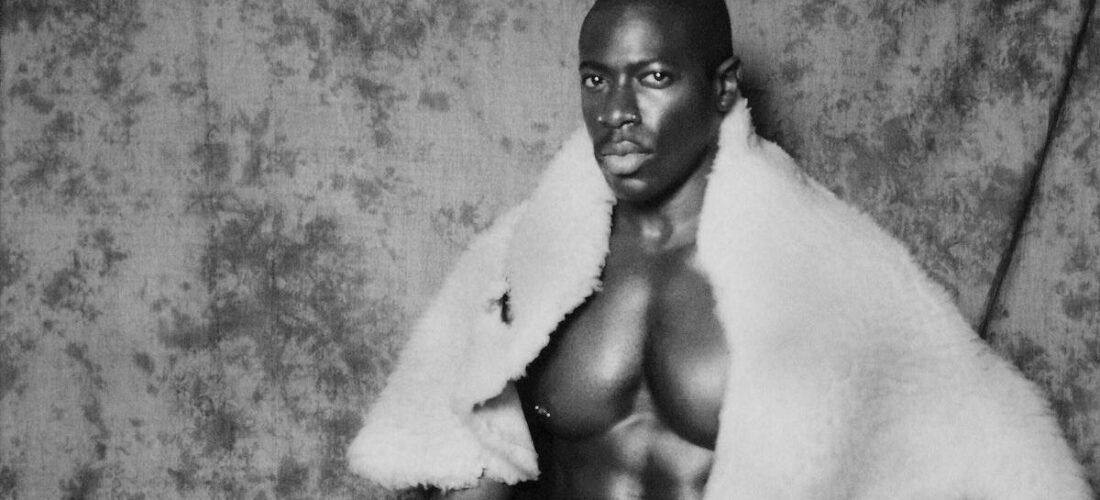When Moses Sumney sings, “I am not a woman, I am not a man” in something close to his speaking voice on “Hey Girl,” I thought, Right on. He is himself and his artistic forebears too—namely, the Prince who offered a similar affirmation in “I Would Die 4 U” Then the kicker: “I am an amoeba.” The San Bernardino native of Ghanaian parents sings over squishy, squirrelly tracks whose post-Maxwell R&B foundations accommodate damaged rock rifflets and modest gospel overtones; you might imagine him practicing vocal runs in the bedroom before church. The six-song EP Sophcore—a curriculum vitae outlining his robust laryngeal resources—recaps Sumney’s achievements and sets up what audiences might expect from a new full-length statement. It’s a tease in the best sense.
Four years ago, on his breakthrough album, grae, Sumney expressed the yearnings of a soul sonic force who loved being, as he sang on one of its most powerful tracks, “neither/nor.” That album’s “Virile,” a collaboration with industrial rock act Yvette, regarded masculinity as a land worth invading with a conquering army. To master such whisper-to-a-scream dynamics requires a sense of self that eschews bluster but is plenty assured.
A collaboration with Portland producer Graham Jonson, who goes by quickly, quickly, yields Sophcore’s prettiest and liveliest moments. “Gold Coast” begins as a sensual, puttering thing indebted to Bjork’s Vespertine. Sumney’s chalky falsetto complements and works against the plucked guitars, distorted multi-tracked vocals, and synths; his impressionistic lyrics (“Talk in tongues, testify/Sunrise skin, color of clay”) say no thanks to coherence, bless them. A symphony of gurgles and music-box melodies cushions “I’m Better (I’m Bad),” in which Sumney recreates with louche delight a dialogue between himself and a feminized object of desire.
Over Sophcore’s recombinant grooves, Sumney radiates a sense of fun. Confidence in his vocal talents doesn’t congeal into self-regard. Turns out he’s right: Trills and melisma suit arrangements that swell and contract like protoplasmic organisms. The finger-snapping rhythm track on the closing “Love’s Refrain” is almost an afterthought, a metronome to remind Sumney that his fascinations remain earthbound despite the stratospheric vantage point of his vowel experiments. “I was in my world, you were in yours too,” he coos, “so let’s refrain.” From what—independence or romance? Duetting with himself into infinity, he deepens the enigmas.
